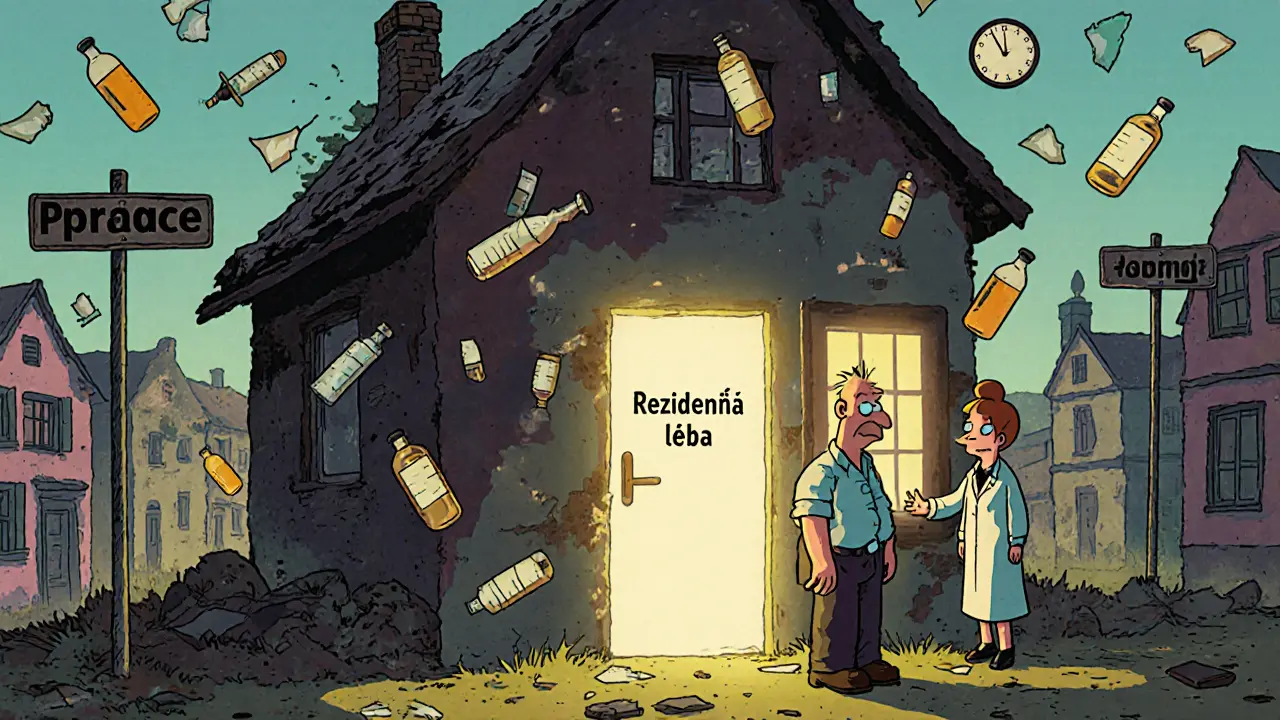Ambulantní léčba: Co to je a kdy je správná volba pro duševní zdraví
When you need help with your mental health, you don’t always need to check into a hospital. ambulantní léčba, formou podpory, kdy pacient navštěvuje terapeuta nebo lékaře na venkov, ale žije doma. Also known as ambulantní psychoterapie, it is the most common and often most effective way to manage anxiety, depression, trauma, or addiction without leaving your home, job, or family. This isn’t just a backup plan—it’s the backbone of modern mental health care in the Czech Republic. Most people who get help for emotional struggles do so through regular sessions with a therapist, psychologist, or psychiatrist while staying in their own environment. It’s cheaper, less disruptive, and for most conditions, just as effective as being hospitalized.
But what makes ambulantní léčba work? It’s not just about showing up once a week. Effective outpatient care includes kognitivně behaviorální terapie, metoda, která pomáhá změnit škodlivé myšlenky a chování, somatické terapie, přístupy, které pracují s tělem, dýcháním a pohybem, aby uzdravily trauma, and consistent support from a team that includes therapists, psychiatrists, and sometimes family members. It’s also where krizová intervence, okamžitá podpora během duševní krize, bez nutnosti hospitalizace fits in—like when someone is overwhelmed by panic attacks, suicidal thoughts, or sudden trauma. A good outpatient plan includes a crisis strategy: who to call, where to go, what to do before things spiral.
Some people think hospitalization is the only way out when things get bad. But in reality, hospital stays are reserved for emergencies—when someone is at immediate risk of harming themselves or others. For most, outpatient care offers stability, structure, and progress over time. You can still heal while raising kids, working, or going to school. The key is consistency. Therapy doesn’t work if you skip sessions or wait until you’re falling apart to call your therapist. Ambulantní léčba requires commitment, but it gives you control. You’re not locked in—you’re learning how to manage your mind while living your life.
Here in the Czech Republic, access to outpatient care is uneven. Waiting lists are long, public funding is limited, and not all therapists accept insurance. But the good news? There are options. From community mental health centers to private practitioners offering sliding-scale fees, help exists—if you know where to look. Below, you’ll find real stories and practical guides on how to navigate this system: how to choose the right therapist, what to expect in your first session, how to build a crisis plan with your family, and when outpatient care is truly enough—or when it’s time to consider something more intensive.
